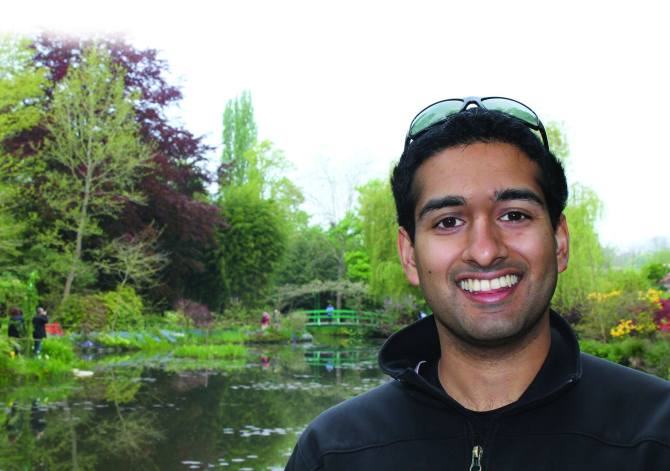Arthur J Pais
Soros’ New American Fellow, Sundeep Iyer’s interest in grassroot politics comes from the altruistic outlook he has inherited from his parents, discovers Arthur J Pais
At Yale, Soros’ New American Fellow Sundeep Iyer is working towards continuing to be a voice for the disenfranchised. He is also becoming, he says, ‘an effective voice in safeguarding democracy by integrating academic research with real-world litigation.’
He adds that his interest in grassroot politics and the desire to fight for minority rights owe a lot to the altruistic outlook he has inherited from his parents.
“My parents had always put others before themselves,” says Iyer. “When my dad (Mani Iyer, an engineer) was my age, he came to America so that he could support his family back in India. And my mom (Raji, a CPA) left India when she was 18 so that she could ease the financial burden on her parents. I had always associated our Indian identity with the selflessness my parents displayed coming to America from India.”
What he had never understood, Iyer wrote in an essay for the Soros competition, was ‘how to reconcile that selflessness with a core message of my American education -- that I was expected to make my own choices to achieve my own success.’
His parents’ actions, he wrote, answered that question.
‘My parents stayed true to the notion of individual empowerment, but they weren’t interested in their own empowerment,’ Iyer wrote. ‘They were interested in mine. Their actions showed me how to reconcile the notion of selflessness and the ideal of individual empowerment. By working to empower others.’
‘With this perspective in mind, I began to view democracy, the subject of much of my college coursework, as a vital tool of citizen empowerment.’
As a Harvard undergraduate, as he learned about the dangers of redistricting election districts, he encouraged low-income middle school students he was volunteer-teaching to fight for their rights.
After graduating from Harvard, Iyer worked for the left-leaning Brennan Center for Justice at the New York University Law School, a non-partisan think tank where he directed statistical research to evaluate democratic reforms.
His research was used in several federal voter rights cases, and his work has been cited in The New York Times, CNN, Washington Post, Politico and National Review.
In 2011, he founded the Statistical Reform in Redistricting Project, whose data have been used by the Sunlight Foundation and Georgia’s Legislative Black Caucus.
Among his work for the Brennan Center was a study that argued that the voter registration laws imposed by the states set up hurdles that could prevent thousands of voters from lower income groups from getting to the polls.
While the advocates of ID laws argue that the laws prevent fraud, Iyer and like-minded liberals assert they lead to disenfranchisement.
The study, written by NYU’s Keesha Gaskins and Iyer, contended that that the free photo IDs are not equally accessible to all voters -- particularly those who live in areas with high poverty rates, black and Hispanic voters, and voters who don’t have cars. ‘Instead of making it more difficult for citizens to go to the polls,’ Iyer has said, ‘we need new laws to modernise our voting system so all eligible Americans can vote on Election Day while reducing the potential for fraud or abuse.’
SRRP is a non-partisan advocacy initiative, he says, dedicated to educating policymakers, litigators, advocates and judges about the statistical methods used to evaluate redistricting plans for election districts, a sensitive and much debate exercise.
“We help and encourage line-drawers to use and judges to accept the most accurate existing statistical methods for redistricting analysis,” Iyer tells India In New York. “We aim to help legislators and the public get past all the partisan ‘noise’ and understand exactly how new redistricting plans will affect them.”
Redistricting decides who in our democracy has their voice heard and who doesn’t, he explains. Using anything less than the most accurate statistical methods to evaluate redistricting proposals -- both in the public arena and in the courts -- does an unacceptable disservice to voter rights in our democracy, he asserts.
Iyer is planning a career in public life and may consider running for political office in a few years.


Comment
article